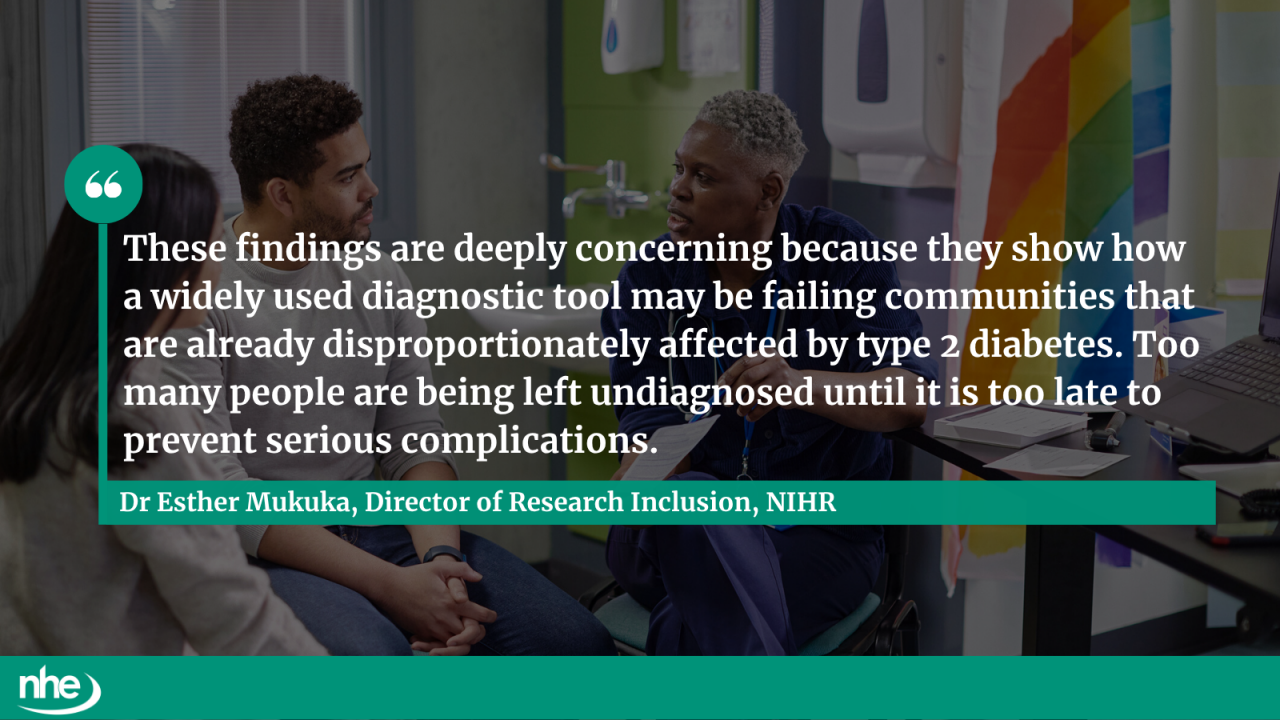A common but often undiagnosed genetic condition may be causing significant delays in type 2 diabetes diagnoses for thousands of Black and South Asian men in the UK – and potentially millions worldwide – according to a new NIHR-supported study.
Researchers from the University of Exeter and Queen Mary University of London, supported by the NIHR Exeter Biomedical Research Centre and funded by a Wellcome Discovery Award, found that men with G6PD deficiency are diagnosed with type 2 diabetes four years later on average than those without the condition.
G6PD deficiency affects the accuracy of the HbA1c blood test, the global standard for diagnosing and monitoring diabetes. The condition causes HbA1c results to appear artificially low, misleading clinicians and delaying treatment. Despite its impact, fewer than 1 in 50 men with the condition have been formally diagnosed.
The study found that 1 in 7 Black men and 1 in 63 South Asian men in the UK carry the genetic variant. Globally, G6PD deficiency affects over 400 million people, particularly those of African, Asian, Middle Eastern and Mediterranean descent.
Men with G6PD deficiency and diabetes were found to be at a 37% higher risk of developing microvascular complications, including eye, kidney and nerve damage. These findings raise serious concerns about the reliability of current diagnostic methods for diverse populations.
The research, published in Diabetes Care, analysed genetic and health data from over 500,000 participants in the UK Biobank and Genes & Health studies. Researchers linked genetic variants to medical records to uncover the impact of G6PD deficiency on diabetes diagnosis and outcomes.
Director of Research Inclusion at the NIHR, Dr Esther Mukuka, said:
“These findings are deeply concerning because they show how a widely used diagnostic tool may be failing communities that are already disproportionately affected by type 2 diabetes. Too many people are being left undiagnosed until it is too late to prevent serious complications. We need greater awareness among healthcare professionals and stronger policies to ensure equitable screening and diagnosis.”

The World Health Organisation recommends routine screening for G6PD deficiency in high-risk populations, but this is not widely implemented in the UK or many other countries. Researchers are calling for an urgent review of diagnostic practices and further studies in diverse populations to confirm the findings globally.
Professor Faye Ruddock, Chair of the Caribbean and African Health Network, also commented:
“Black communities in the UK experience health inequalities, particularly relating to type 2 diabetes. Stigma, language, and cultural differences can contribute to delayed diagnosis, while reduced physical health checks and screening opportunities in predominantly Black communities also contribute to this disparity. This study highlights important evidence that must be used to tackle these health inequalities and improve outcomes for Black communities. Preventative measures are now needed to ensure that Black people, especially men, are not underdiagnosed or diagnosed too late.”
This study highlights the need for more inclusive healthcare diagnostics, ensuring that genetic diversity is accounted for in routine testing to prevent delays and reduce complications.
Image credit: iStock



















